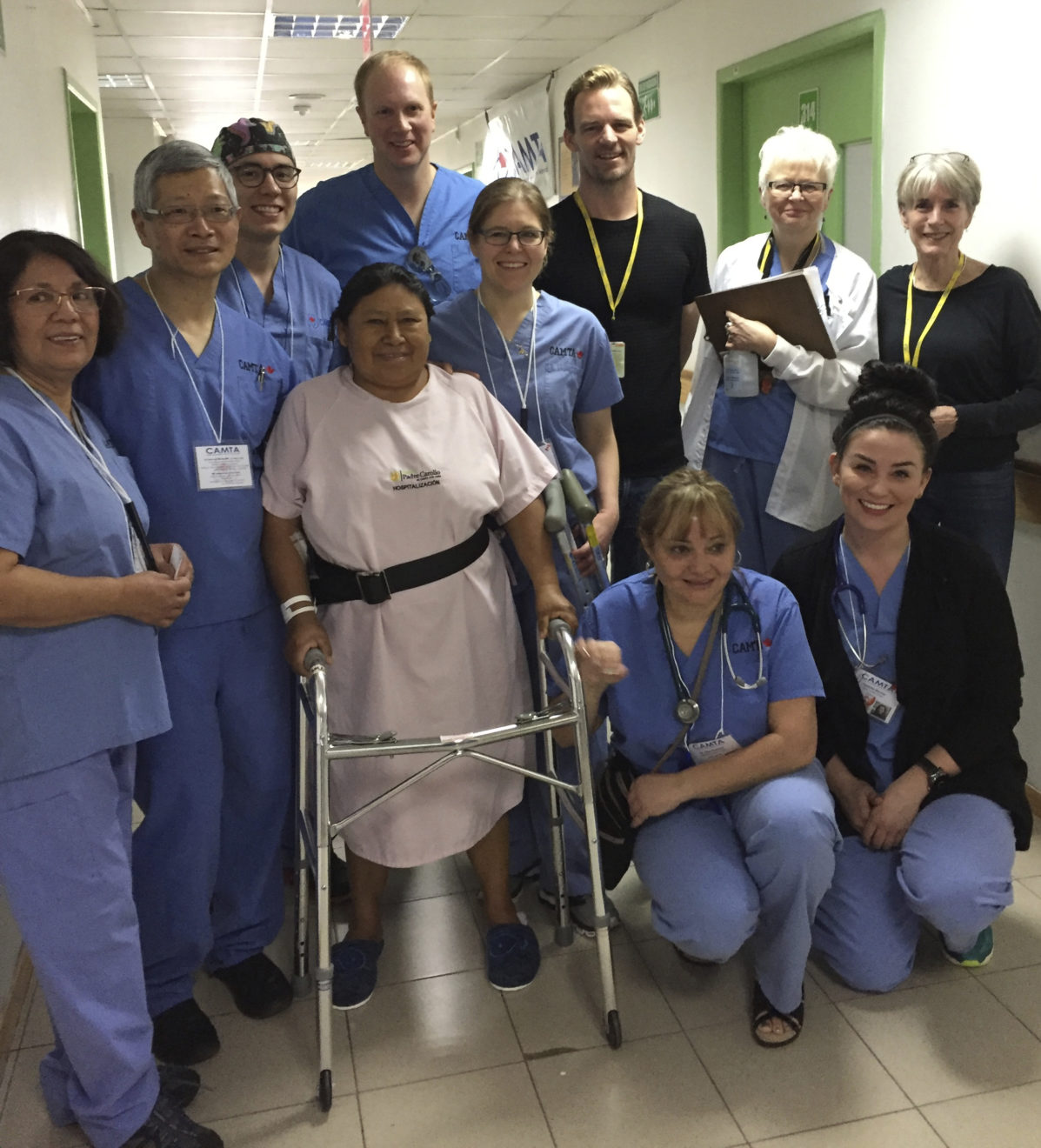Above: Members of the CAMTA team pose with patient Maria Rosa while she takes her first steps.
In February 2018, HSAA members Mark Rintoul, Barb Furler, Dedra Scott, Anna Hebert, Erik Soriano, and Krystle Chilibecki ventured to Quito, Ecuador with the organization CAMTA.
The Canadian Association of Medical Teams Abroad (CAMTA) is a non-profit organization that annually sends a team of medical and non-medical volunteers to Quito to perform life-changing orthopedic surgeries for people in need.
While the highlight of volunteering with CAMTA is the 10 days during the mission, volunteers also assist preparing for the mission. Prior to leaving, we pack medical equipment, prepare education presentations and, of course, practice our Spanish. Additionally, each member is responsible for raising a minimum of $3,000 to contribute to the mission. While volunteers do a variety of fund-raising events, we were fortunate to have the HSAA’s Social Justice Committee donate $100 to each HSAA member.

Each day of the mission is a long, busy and happy day. We wake up early to be at the hospital for our first surgical patients at 8 a.m. While the patients are being prepared for surgery, the OR team including our respiratory therapists, Mark and Dedra, are preparing in the OR.
For some of the children, bubbles, stickers or stuffies are used to help take their mind off the surgery. For adults, reassurance is provided through a translator. After the surgery, the patients are taken to the ward where the care is similar to here in Alberta: Nurses monitor the patients and the physiotherapy team (Barb, Krystle, Anna and Erik) help them take their first steps.
While each patient has a story, one that has stood out for us is the story of Maria Rosa. She came to the clinic walking with a very simple stick. She walked with it in front of her and would step her legs on either side of it. While this walking worked for her, it was awkward and she was self conscious, as other patients had nicer canes and crutches.
After surgery, Maria Rosa was able to retire her walking stick and use crutches with a normal walking pattern. In a few weeks, she will not need any device to aid her walking, but has kept her stick as a memory of her struggles and her life-changing surgery.
The smiles on the faces of patients and their families make the long days and hard work in Ecuador worth it. In Ecuador, there is a financial cost to medical care, one that many cannot afford. It is both rewarding and humbling to use our skills to help those people truly in need.
